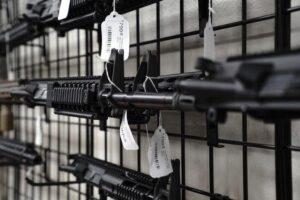
All 50 Democratic members and 14 Republicans in the Senate voted to advance a new bipartisan gun bill on Tuesday, with the intention of getting it passed before July 4. The 80-page bill, called the Bipartisan Safer Communities Act, was approved by the Senate following a series of mass shootings, including tragic shootings in New York and Texas.
The bill is less expansive than the initial proposal passed by Democrats in the House. However, it is already facing stiff opposition from some Republican House members. If passed into law, the bill will bring with it the most changes to the country’s existing gun legislation in decades.
Additional Budget
The bill would allocate $750 million over the next five years to assist states in enacting red flag laws, which let police temporarily seize firearms from someone believed to pose a threat to themselves or others. The Act permits the implementation of these programs through mental health, drug, and veterans’ courts, which already exists in 19 states and the District of Columbia.
Republicans who participated in the negotiations pushed to ensure that everyone who is flagged has the right to a hearing, an impartial adjudicator, the right to know opposing evidence, the right to present evidence, the right to confront adverse witnesses, and the right to bring counsel to the hearing.
Loopholes and Expanded Background Checks
The bill also aims to close the so-called “boyfriend loophole” by barring anyone convicted of domestic violence involving a former or current dating partner from purchasing a firearm. The law mandates extending background checks to purchasers who are younger than 21 and allowing three business days for the completion of the investigation into their criminal and mental health histories. The proposal will allow for an additional seven business days to investigate the purchase if the background check reveals anything suspicious in their past.
Mental Health
The bill would provide additional funding for the national suicide prevention hotline and would increase funding for schools to hire more staff members to provide mental health services. It would also make it simpler for Americans on Medicaid to use telehealth services and community-based mental health and substance use disorder treatment providers and organizations.
FFL Expansion
The law would also mandate that additional sellers register as Federally Licensed Firearm Dealers, including anybody who sells firearms as a way of generating profit. These dealers will also be required to conduct background checks on prospective purchasers and maintain records of all sales.
Additionally, the law would impose stiff sanctions on “straw” buyers who acquire firearms on behalf of people that cannot pass a background check.

